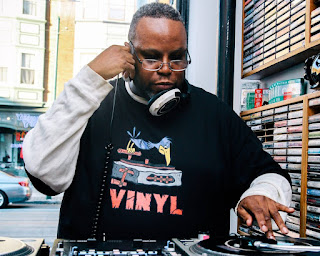 |
| Tom Qualters, pictured here on his 1955 Topps card, passed away February 15, 2024. |
In 1953, the Philadelphia Phillies gave pitching phenom Tom Qualters a $40,000 contract, immediately making him their highest paid player, eclipsing the combined salaries of his Hall of Fame teammates Richie Ashburn and Robin Roberts. The fresh-faced right-hander quickly earned the nickname “Moneybags” and became the poster boy for the bonus rule, which required teams to keep a player on the active roster if his bonus exceeded $4,000.
“It was somebody — a newspaper guy — who started that,” Qualters said about the nickname’s origin during a 2008 interview from his home.
Qualters died February 15, 2024 in Somerset, PA. He was 88. When we spoke in 2008, his memories were sharp, and he didn't hold back about his rushed entrance to the majors.
Bonus Baby Blues
Some teams struck gold with their “bonus baby” signings, producing Hall of Fame talents such as Sandy Koufax and Al Kaline. However, others turned a cold shoulder to players like Qualters. He pitched just one game on the mound during the two years the Phillies were required to keep him on the roster.
“That was about the worst rule they could have ever done,” he said. “You had to stay there two years. I was there 1953–54 and a little bit of 1955. … Basically, I was a batting practice pitcher. That was a sad thing. A lot of guys were in the same situation.”
The Phillies front office had different plans for Qualters. They shielded him from major league competition until he finished his mandated service time. For two years Qualters suffered on the bench while teammates resented him for holding a valued roster spot hostage.
“For some reason, the management in Philadelphia had this theory that if I went out there and got beat up, that it would ruin me,” he said. “What a bunch of bulls–t that was. It was the most frustrating period in my life. I hated being there. Some [players] were really good to me, and others ignored me altogether.
“I didn’t belong there. All I was doing was taking up space for someone who was a major league player. Imagine how that made me feel; I’m hurting the team, not helping them. I’m not even getting a chance to go out there and learn the game. It was two years out of my life that was totally a waste. You can sit there, talk and listen to guys — sure I got an education about the game, but it’s not like being on the field and playing it. You can’t learn to play the game by sitting on the bench. I could have bought a ticket. It was just a horrible thing.”
Supportive Teammates
Not all of the players, however, turned their backs on Qualters. He made it a point to acknowledge those who looked out for him.
“There were some guys who were very kind,” he said. “Robin Roberts and Curt Simmons were super guys. Jim Konstanty was [also] nice. There were other guys who didn’t want anything to do with me. As time wore on it got better and it wasn’t a personal thing anymore.”
Satchel Paige Intervenes
Qualters was relieved when the Phillies sent him to their Reidsville, North Carolina, Class B team. From there he was promoted to their Triple A team in Miami. With the Marlins, he linked up with Satchel Paige and thrived under the Hall of Famer’s tutelage.
After a shaky Triple A debut, Qualters showed up to the ballpark still doubting his abilities. The ageless Paige knew something was off about his new teammate.
“I’m sitting down in the bullpen, Satch sits down beside me and asked, ‘What’s wrong?’” Qualters recalled. “He recognized there was something wrong with me by the way I was acting. I did not know what to do so I just flat out told him that I did not have the courage to play the game and that I shook all over, etc. He called me Climber. He said, ‘Imma tell ya, Climber, them sons of bit–es can beat ya, but they can’t eat ya!’”.
Paige’s words were just the right recipe to help Qualters get through tough times on the mound. It was the push he needed to move forward with his career.
“Another tight game and I get called up there and I just get the shakes again,” he recalled. “I said to myself, ‘You sons of bit–es, you can beat me but you can’t eat me!’ It was all over from then on; I couldn’t wait to get out there.”
Baseball Card Legacy
Qualters eventually made it back to the Phillies briefly in 1957 before resurfacing with the Chicago White Sox in 1958. His time in Chicago led a 1959 Topps card appearance. Even though he pitched only 43 innings, he said that didn’t make a difference to the baseball card manufacturer.
“They didn’t care what you did or didn’t do, as long as you were on the team [you had a card],” he said.
Fifty years later, the amount of fan mail he received after being on the team for only one season still amazed him. Topps even had him sign 300 cards for their 2008 Topps Heritage set.
“It’s been crazy the last 4–5 years,” he said. “I probably get 3–4 of them per week. I have a card from 1959 when they went to the World Series. I didn’t even play [for the White Sox] in 1959, that’s when I hurt my arm. A guy came here with 300 cards I had to autograph and [Topps] paid me money for it.”
*I originally wrote this article for the Wax Pack Gods website.*






